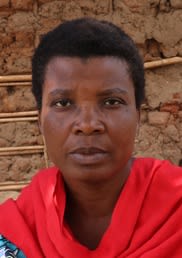Rebuilding dignified lives: Gender in peacebuilding in Burundi
The post-independence history of Burundi until 2005 has been largely marked by violent conflict and genocide, the numerous legacies of which continue to cast their shadow over Burundian society. Despite this, peacebuilding is happening. This study, which is part of a wider four-country research project, seeks to highlight some of these processes and possible lessons that can be drawn from them.
The peacebuilding process remains a fragile one, with many fearing that the 2015 elections will lead to further political violence. Nonetheless, since the end of the civil war, Burundians at all levels have been rebuilding their individual and family lives as well as those of their communities. This process has been mostly occurring at the local level and has involved often painful negotiations and renegotiations of past violence and current, gendered power dynamics.
The basic premises of this study are firstly that gender identities, norms and power dynamics are essential to peacebuilding. Secondly, gender needs to be understood in a comprehensive, relational way for it to be a meaningful and useful category of analysis for peacebuilding.
By this, we mean that gendered approaches need to be aware of the different roles, norms, expectations, opportunities, needs and vulnerabilities faced by women, men, girls, boys and transgender and intersex persons. Moreover, these gender identities need to be seen in the context of other social identity markers such as age, class, disability, ethnic background, marital status or the like. It should be acknowledged also that gender identities are constructed by men and women, girls and boys, sexual and gender minorities together, and in relation to each other.
Related publications
Rethinking gender in peacebuilding
Re-examining identities and power: Gender in peacebuilding in Colombia
Re-assessing gender norms after conflict: Gender in peacebuilding in Nepal
Renegotiating the ‘ideal’ society: Gender in peacebuilding in Uganda






